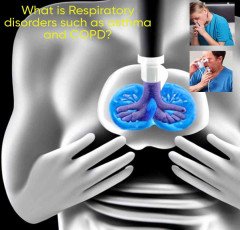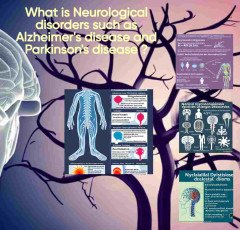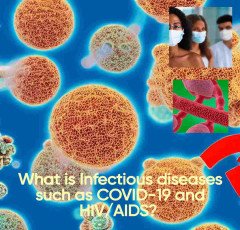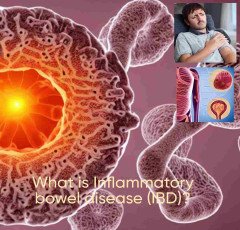
What is Cancer screening, prevention, and treatment ?

Three crucial components of controlling cancer are screening, prevention, and treatment.
Cancer screening is the practice of detecting cancer in persons who are asymptomatic.
A physical examination, imaging tests (such mammograms, colonoscopies, or CT scans), or laboratory testing (like a Pap test or blood test) can all be a part of this.
Screening is crucial because it can aid in the early, more curable detection of cancer.
Cancer prevention entails adopting measures to lower the likelihood of developing the disease.
This may entail modifying one's lifestyle by giving up smoking, adopting a balanced diet, and engaging in regular exercise.
Getting immunized against specific cancer-causing viruses, such as the human papillomavirus (HPV), is one possible additional preventative approach.
Surgery, chemotherapy, radiation therapy, immunotherapy, targeted therapy, and hormone therapy are just a few of the methods used to treat cancer.
The type and stage of the cancer, the patient's general health, and personal preferences all influence the treatment option.
Curing the cancer, limiting its growth and spread, symptom relief, and quality of life enhancement are all possible treatment objectives.
It is crucial to remember that cancer is a complex disease, and that no one treatment is appropriate for all patients.
Each person's battle with cancer is distinct, and a team of medical experts who can help create a customized treatment plan should lead the way.
Supportive care may also be used during cancer therapy to relieve side effects such exhaustion, nausea, and discomfort.
In order to help patients and their families deal with the psychological stress of cancer, supportive care can also include emotional and psychological support.
It's also crucial to remember that cancer is a set of disorders characterized by abnormal cell growth and division in the body rather than a single illness.
A separate approach to screening, prevention, and therapy may be necessary for each form of cancer because they can act differently.
The key to controlling cancer is prevention and early detection because they can lower the number of cases and increase the likelihood of successful treatment. Early detection and rapid treatment, however, can also be crucial in cases where cancer has already spread in order to improve results.
An essential part of controlling cancer is cancer screening, prevention, and therapy.
People can improve their odds of successfully treating this complex disease by taking actions to lower their risk of developing cancer, undergoing frequent checkups, and seeking fast treatment when required.
It's also important to keep in mind that the field of cancer therapy is rapidly changing, with new technologies and therapies being created and improved all the time.
As a result, therapy alternatives may keep growing and getting better.
A greater emphasis has been placed in recent years on personalized or precision medicine, which entails adjusting the course of treatment to the particulars of each patient's cancer. This may entail examining the genetic composition of the cancer cells and applying targeted medicines created to target those cells selectively.
Another aspect of cancer treatment that has made great strides recently is immunotherapy.
This method has showed promise in treating a number of different forms of cancer by employing the body's own immune system to combat cancer cells.
Cancer detection, prevention, and therapy are intricate and varied fields.
To create and put into practice efficient management plans for this disease, healthcare professionals, patients, and their families must work together.
There is hope that the prognosis for cancer patients will continue to improve with time thanks to ongoing research and technological advancements.
The physical, emotional, and financial effects of cancer therapy can be profound for both patients and their families.
Fatigue, discomfort, nausea, hair loss, and changes in appetite or mood are a few of the typical side effects of cancer treatment. As a result of their diagnosis or therapy, patients may also develop anxiety, depression, or other mental health issues.
It's crucial that patients have access to all necessary support services in order to help them handle these difficulties.
This may entail treatment or counseling to help with emotional and psychological stress management, as well as support groups or other tools to help patients connect with others going through comparable circumstances.
The cost of cancer treatment, which may be a considerable burden for many patients and their families, may also be covered by financial assistance programs.
To determine the resources that are available and create a strategy for managing the financial effect of cancer treatment, patients should consult carefully with their medical team.
Screening for cancer, preventing it, and treating it are all essential parts of managing this complicated condition.
There is hope that we will continue to make progress in creating better and more efficient methods for managing cancer with continuing study and technological advancements.
In the interim, it's critical that patients and their families have access to a wide range of support services to assist in managing the physical, emotional, and monetary difficulties associated with cancer. It is critical to stress that cancer is a complex illness that has diverse effects on patients, their families, and caregivers.
Because every person's experience with cancer is different, they need tailored care and support.
A complete care plan that takes into account the medical, emotional, and practical requirements of the patient and their family can be provided by a team of healthcare experts, including doctors, nurses, social workers, and other specialists.
Additionally, cancer prevention is essential for lowering the burden of the disease in terms of both the number of cases and the price of cancer treatment.
This can involve altering one's lifestyle, such as giving up smoking, consuming less alcohol, keeping a healthy weight and diet, and engaging in more physical activity.
Additionally, getting immunized against cancer-causing viruses like HPV and hepatitis B can lower the risk of developing some cancers.
Regular cancer screenings are crucial for early detection of the disease because this is when therapy is most likely to be successful. People should review their screening options with their healthcare professional to establish which tests are appropriate for them because different cancer types may require different screening procedures.
An essential part of controlling cancer is cancer screening, prevention, and therapy.
A complete care plan that takes into account the patient's and their family's physical, emotional, and practical requirements can be created by healthcare experts working collaboratively.
We can lessen the impact of cancer and enhance outcomes for those who are diagnosed by putting a strong emphasis on early identification and prevention. Various complementary therapies and practices can be utilized in addition to medical interventions to support cancer patients during and after treatment.
These can include physical health and wellness-promoting therapies like acupuncture, massage, and meditation as well as diet and exercise regimens.
Additionally, new advancements in the understanding of cancer biology, prevention, and treatment are being made as a result of the ongoing evolution and expansion of cancer research.
For many patients, the introduction of targeted treatments and immunotherapies, for instance, has transformed cancer treatment and significantly improved results in recent years.
Clinical trials are also a crucial part of cancer research because they give patients access to cutting-edge therapies that are still not generally available.
Patients can help discover novel cancer medicines by taking part in clinical trials and may also benefit from these therapies themselves.
Given the complexity of the condition, managing cancer calls for an all-encompassing strategy that involves teamwork. We can continue to advance in the battle against cancer and improve outcomes for individuals who are afflicted by this disease by putting an emphasis on prevention and early detection, creating tailored care plans, and embracing new discoveries in cancer research.
It's critical to understand how cancer affects society as a whole. Cancer has a tremendous influence on society and the economy in addition to affecting patients and their families.
Cancer sufferers may encounter difficulties with work, insurance coverage, and access to healthcare due to the high cost of cancer treatment.
Cancer emphasizes the need of advancing health equity and minimizing healthcare inequities.
People who belong to racial and ethnic minorities, as well as those who earn less money or have less education, are more likely to acquire and pass away from specific types of cancer.
Reducing these gaps and ensuring that everyone has access to high-quality cancer care depend on enhancing these populations' access to cancer prevention, screening, and treatment.
A thorough management strategy is needed for cancer because it is a complicated and multidimensional condition. This entails emphasizing cancer prevention and early detection, offering individualized and supportive care, embracing recent advancements in the field of cancer research, and addressing the disease's broader societal effects.
Together, we can advance the battle against cancer and improve the situation for individuals who are afflicted with the disease.
Palliative care, a type of specialist medical care that focuses on symptom relief and enhancing quality of life for patients with serious illnesses, including cancer, is a crucial component of cancer management.
Palliative care can be given at any stage of the cancer treatment process, either in conjunction with curative therapies or on its own.
Specialists in pain treatment, symptom control, and emotional and spiritual support are frequently included on palliative care teams.
End-of-life care, which is offering support and care to patients who are nearing the end of their lives, is another crucial aspect of cancer management.
Offering comfort measures, controlling symptoms, and guiding patients and their families through the emotional and practical facets of end-of-life care are a few examples of what this can include.
Cancer management now places a greater emphasis than ever on cancer survivorship. A lot of cancer patients are now surviving longer and managing their illness as a chronic condition because to advancements in cancer treatment that have improved survival rates.
Survivorship care entails addressing the physical and psychological impacts of cancer and its treatment, offering ongoing support and monitoring for cancer survivors, and promoting good lifestyle practices to lower the chance of cancer recurrence.
An all-encompassing strategy for managing cancer must take into account its effects on the body's physical, psychological, social, and financial systems.
Important components of cancer management that work to enhance the quality of life for cancer patients and their families include palliative care, end-of-life care, and survivorship care.
We may endeavor to improve outcomes and lessen the burden of cancer on both individuals and society as a whole by continuing to increase our understanding of cancer and developing novel treatments and supportive services.
It's crucial to understand that managing cancer calls for a multidisciplinary approach, with a group of medical experts cooperating to offer patients the best care possible.
Doctors, nurses, social workers, dietitians, physical therapists, and other specialists who can attend to the various needs of cancer patients may be included on this team.
In managing cancer, communication is also essential. Healthcare professionals should give patients and their families the opportunity to ask questions and voice concerns, and they should be honest and truthful in their explanations of the diagnosis, available treatments, and any potential side effects.
The management of cancer necessitates a dedication to constant learning and study. Healthcare practitioners should stay current on the newest advancements in cancer prevention, screening, and treatment as our understanding of cancer continues to advance. Innovating novel treatments and enhancing outcomes for cancer patients both depend on cancer research.
In conclusion, managing cancer requires a thorough, multidisciplinary strategy that takes into account the financial, emotional, social, and physical effects of the disease.
All of these crucial elements of cancer management can contribute to better outcomes for cancer patients and their families, including effective communication, continued education, and research.
We may endeavor to lessen the burden of cancer by continuing to improve our understanding of the disease and offering high-quality care to individuals who are impacted by it.














 The Click Engine
The Click Engine  Only For The United States
Only For The United States  Best Selling Books
Best Selling Books  TitTok Revolution
TitTok Revolution  Best Home Appliances
Best Home Appliances  ASUS Laptop
ASUS Laptop  Online Marketing
Online Marketing  Creative Brief For Video Shoot
Creative Brief For Video Shoot  Men Clothing
Men Clothing  Graphics & Design
Graphics & Design  Unreal Engine 5 For Beginners Learn The Basics Of Virtual Production
Unreal Engine 5 For Beginners Learn The Basics Of Virtual Production  Women Fashion
Women Fashion  Amazon Best Selling Products
Amazon Best Selling Products  The Secret Email System
The Secret Email System  Sennheiser
Sennheiser  SEO Checklist
SEO Checklist  ASPINAL LONDON
ASPINAL LONDON  NordPass
NordPass  Favorite Company (Cuelinks)
Favorite Company (Cuelinks)  Online Technology Classes
Online Technology Classes  Unlimited access to classes on illustration, photography, design, film, music
Unlimited access to classes on illustration, photography, design, film, music  Hello Theme
Hello Theme  Artificial Intelligence
Artificial Intelligence  All Wireless Products
All Wireless Products  1150+Trendy kids coloring pages Bundle
1150+Trendy kids coloring pages Bundle  SOFAS
SOFAS  ELECTRONIC ACCESSORIES
ELECTRONIC ACCESSORIES  NordVPN
NordVPN  BEST SELLER TOP10
BEST SELLER TOP10  Best Sellers On Amazon
Best Sellers On Amazon  Smart Doorbell
Smart Doorbell  RPM 3.0
RPM 3.0  Best Robotic Vacuum Cleaners
Best Robotic Vacuum Cleaners  NordLocker
NordLocker  Acer Laptop
Acer Laptop  Top Rated From Amazon
Top Rated From Amazon  Hot Bags For Pain Relief
Hot Bags For Pain Relief  One World Collection
One World Collection 
















